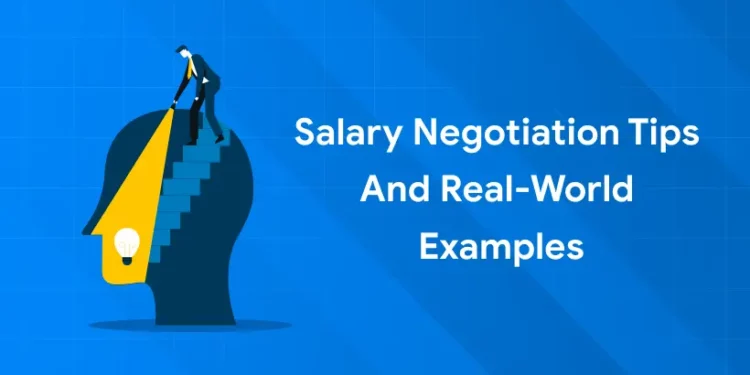Table of Contents
Key Takeaways:
- Market research and understanding your value dramatically improve negotiation outcomes.
- Presenting clear reasoning and situational evidence strengthens your position.
- Non-salary benefits like remote work, bonuses, or extra vacation often have high tangible value.
- Mastering the art of walking away is as powerful as negotiating itself.
- Invest in communication and confidence—courses like Entri’s Personality Development can boost your results.
Introduction
Negotiating your salary is more than just a financial transaction—it’s an essential career skill. The difference between accepting the first offer and negotiating smartly could add lakhs to your lifetime earnings. The challenge quickly follows the thrill of receiving a job offer: should you accept, negotiate, or walk away? In 2025’s dynamic work environment, mastering this skill sets the stage for a rewarding career.
Job negotiations often stir anxiety—after all, the process is personal and impacts your trajectory. The ability to communicate value can mean the difference between landing your dream role, maximizing your pay, and setting the tone for future growth. Remember, asking for more is not confrontation, but a step toward mutual respect and professional maturity.
What Is Salary Negotiation?
Salary negotiation is the process of discussing the terms of your compensation after a job offer or during reviews. This covers base pay, perks, bonuses, and sometimes even job responsibilities.
Elements Frequently Negotiated
- Base salary
- Performance bonuses
- Stock options/equity
- Flexible hours/work-from-home options
- Paid leave and holidays
- Relocation support
Negotiation Outcomes Table
| Element | Typically Negotiable? | Impact on Total Value |
|---|---|---|
| Base Salary | Yes | High |
| Bonuses | Sometimes | Medium |
| Equity/Stock | Startup roles | Potentially high |
| Remote Work/Flexibility | Yes | High for hybrid jobs |
| Extra Vacation | Yes | Medium |
| Insurance/Benefits | Sometimes | Medium |
Why Negotiate Your Salary in 2025?
With remote work, increased transparency, and stronger employee data, negotiation has become both expected and essential.
- 84% of employers expect candidates to negotiate—accepting the first offer is rarely optimal.
- Negotiation sets long-term salary anchors, influencing future raises and roles.
- Addressing the total benefits package can yield a better overall deal than just more salary.
How To Prepare for Salary Negotiation
Preparation is the backbone of effective salary negotiation. When you come to the table equipped with research, self-awareness, and a plan, you’re more likely to advocate for your true worth. Let’s break this process into actionable steps:
1. Know Your Unique Value
- List achievements: Identify projects where you made a measurable impact—mention promotions, revenue growth, new processes, awards, etc.
- Catalogue skills: Highlight certifications, special training, leadership qualities, or in-demand technical abilities.
- Self-reflection: What makes you a standout in your field or role? Consider feedback from past managers and peers.
2. Research the Market
- Salary benchmarking: Use platforms like Glassdoor, Indeed Salaries, and company review sites to find real salary data for your specific role, location, and experience.
- Check competitor offers: Look at job postings from similar companies; note advertised pay ranges, bonus incentives, and perks.
- Local factors: Adjust for cost-of-living, city or state differences, and particular industry trends (e.g., tech pay in Bengaluru vs. Kochi).
- Present comparison data: You might bring a table like this:
| Role | National Avg. (INR) | Metro Avg. (INR) | Your Target Range (INR) |
|---|---|---|---|
| Software Engineer | 8,00,000 | 9,50,000 | 9,00,000 – 11,00,000 |
| Marketing Manager | 7,00,000 | 8,20,000 | 8,00,000 – 9,50,000 |
3. Prepare Evidence and Talking Points
- List core responsibilities: Match job requirements with your skills and past achievements.
- Bring examples: Narrate success stories (“I managed an X-rupee campaign capturing Y% growth”).
- Align with employer’s needs: Connect your strengths directly to job goals, showing you’re a solution.
4. Practice Your Pitch
- Mock negotiations: Role-play with a friend, mentor, or online video call.
- Feedback loop: Ask for honest critique on tone, clarity, and persuasiveness. Adjust and repeat.
- Confidence building: If nervous, take personality development training or communication workshops (try Entri’s Personality Development course).
5. Set Your Walk-Away Point
- Decide your minimum: What’s the lowest total package you’ll accept? Consider personal priorities like work-life balance or long-term growth.
- Plan fallback scripts: If an offer is below your threshold, be ready to politely decline or ask for alternatives (bonus, flexibility, etc.).
6. Organize Documentation
- Carry printouts or digital files of your achievements, salary research, and preferred terms.
- Keep copies of all correspondence.
Also read: How to Talk About Salary in a Job Interview
Boost Your Skills & Kickstart Your Career!
Employability and Personality Development Course by Entri App: Enhance your communication, confidence, and job-ready skills to excel in your career.
Join Now!Salary Negotiation Tips for Success
Getting negotiation right means blending assertiveness with tact, aiming for a win-win instead of a win-lose. Here’s how you can maximize your outcome:
Be Likeable and Assertive
- Balance: Approach the conversation with professionalism, enthusiasm, and a positive attitude.
- Gratitude: Thank the employer for the offer before suggesting changes.
Justify Your Request with Evidence
- Reference: Use your market research to point out fair compensation.
- Connect: Relate your specific achievements to the value they’ll bring to the company.
Bundle Requests Together
- Efficiency: If you want both salary and remote work, ask at once rather than one by one.
- Clarity: Prioritize top 2-3 asks and state them clearly.
Focus on the Complete Package
- Beyond salary: Consider insurance, vacation, professional development, flexible timings, or home-office support.
- Trade-offs: Sometimes a slightly lower salary is offset by generous benefits or growth opportunities.
Collaborate, Don’t Issue Ultimatums
- Phrase gently: Instead of “I need X or I can’t accept,” say “I’d be excited to join if we can get closer to X. Is that possible?”
- Solution mindset: Frame negotiation as working together, not in opposition.
Don’t Accept Immediately
- Take time: Ask for the offer in writing. Take a day or two to consider, review, and respond.
Document Agreements
- Written confirmation: Ensure changes or perks discussed are included in the official offer.
- Clarify details: Don’t assume—double-check starting date, bonus terms, job role, etc.
Communicate Excitement for the Role
- Express motivation: Employers appreciate candidates invested in their mission, not just the money.
- Team fit: Mention how you see yourself contributing to culture and company values.
Ask For Feedback
- Improvement: If the negotiation doesn’t succeed, request feedback to grow for the future.
Tip: Many negotiation strategies—such as assertive communication, handling objections, and active listening—can be mastered with formal training. Consider enrolling in Entri’s Personality Development course, specifically designed to build your confidence and polish your workplace skills.
People also read: 10 Best Skills to Include on a Resume
Common Salary Negotiation Mistakes
- Accepting immediately without asking questions.
- Focusing exclusively on base salary, neglecting perks and benefits.
- Being overly aggressive or timid—strive for balance.
- Not preparing answers for tough questions about counter-offers or walk-away points.
- Failing to clarify priorities among requests.
Salary Negotiation Styles: What Works Best
A landmark study identified five styles candidates use:
| Style | Negotiation Approach | Outcome for Salary | Satisfaction Level |
|---|---|---|---|
| Collaborating | Problem-solving | Moderate | High |
| Competing | Maximizing self | High | Moderate |
| Accommodating | Prioritizing others | Low | High |
| Compromising | Seeking middle | Low | Moderate |
| Avoiding | Dodging negotiation | None | Low |
Best Outcomes: Assertive competing and collaborating styles raised initial pay by ₹5,000 on average.
Boost Your Skills & Kickstart Your Career!
Employability and Personality Development Course by Entri App: Enhance your communication, confidence, and job-ready skills to excel in your career.
Join Now!Examples of Salary Negotiation Communication
Email Example
“Thank you for your offer for the Sales Manager position. My eight years’ direct industry experience, including surpassing quotas by 15% for the past three years, positions me in the range of ₹10,00,000–₹12,00,000. Is there flexibility around this figure or alternative benefits like bonuses?”
Face-to-Face Example
- Begin with sincere thanks.
- Reference measurable achievements and years of experience.
- Clearly articulate your target salary and openness to non-monetary benefits.
Communicate and Win: Power-Up With Entri
Confident, clear communication swings negotiations in your favor. If handling tough conversations and expressing value feels challenging, invest in skill development. Entri’s Personality Development course offers modules on negotiation, assertiveness, and professional communication—giving you lifelong leverage in career growth.
Useful Salary Negotiation Terms
| Term | Meaning |
|---|---|
| Market Value | Industry-based average salary for your role |
| Sign-On Bonus | Upfront incentive for joining |
| Equity/Stock | Shares/options in company ownership |
| Counteroffer | Employer’s response to negotiation |
| Walk-Away Point | The minimum you need to say “yes” |
Conclusion
Negotiating salary in 2025 isn’t just a means to earn more—it’s about achieving professional respect, tailored rewards, and career satisfaction. With solid preparation, assertive communication, and the right negotiation style, you can set yourself up for success. Don’t hesitate to invest in personality development for confident communication; it pays dividends in every negotiation, from salary to future promotions.
Equip yourself with research, polish your soft skills, know your priorities, and go into every negotiation to win—because your value deserves recognition.
Boost Your Skills & Kickstart Your Career!
Employability and Personality Development Course by Entri App: Enhance your communication, confidence, and job-ready skills to excel in your career.
Join Now!Frequently Asked Questions
When should salary be discussed?
After the employer makes a formal offer, not before.
How can you respond to a “non-negotiable” offer?
Ask about perks or alternatives: work schedule, early review, bonus.
How much more can you safely ask?
Typically, 10–20% above the initial offer if research supports it.
Is email negotiation professional?
Yes. It documents the process and gives space for thoughtful replies.
What if the final salary is below your minimum?
Decline professionally and stay open to future opportunities.
















